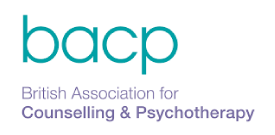'Difficult roads often lead to beautiful destinations'
The Bowen Technique
The Bowen Technique is primarily a remedial therapy tool. It differs from many other forms of therapy in that it does not attempt to inflict the will of the therapist or a specific outcome onto the client, instead it offers the body an opportunity to restore structural integrity. The Bowen Technique consists of a series of moves across muscle, tendon ligament and other soft tissue. The majority of the moves can be performed through light clothing. The natural healing process starts to happen when the therapist leaves the room on a regular basis between moves, for 2-5 minutes. This is the time the body/brain is given an opportunity to realise something different has happened and to make adjustments. It is initially recommended clients have 2-3 sessions which will give them the opportunity to see if any change has happened. Every client is different, some clients are totally relieved of pain very quickly and require no further treatment, some will require fortnightly or monthly top-ups initially, then maybe only 1 or 2 treatments a year. I liken Bowen Technique to the concept of Cognitive Behavioural Therapy (CBT) in that it changes the way the body thinks, feels and behaves.
What Conditions Can Safely Be Treated?
There is no situation where the Bowen Technique cannot be used safely and to good effect. I list below some examples of reasons for requiring the Bowen Technique, please note there are many more presentations that can be treated:
People at every age can be treated: newborn babies, the elderly and everyone in between. Bowen does not claim to cure conditions, but can treat symptoms of conditions
- Back pain / sciatic presentation
- Shoulder / Neck
presentations e.g. - Frozen shoulder
- Hamstring / Knee / Ankle pain / injury
- Asthma
- Stress / depression
- Lymphatic drainage MS (pain relief)
- ME / Fibromyalgia / Glandular Fever
- Cancer (relief of pain and stress)
- Bed wetting
- Hayfever
- IBS
- Body balancing /grounding
- ADHD
- Energy blocks /chronic fatigue
- Addictive behaviour








